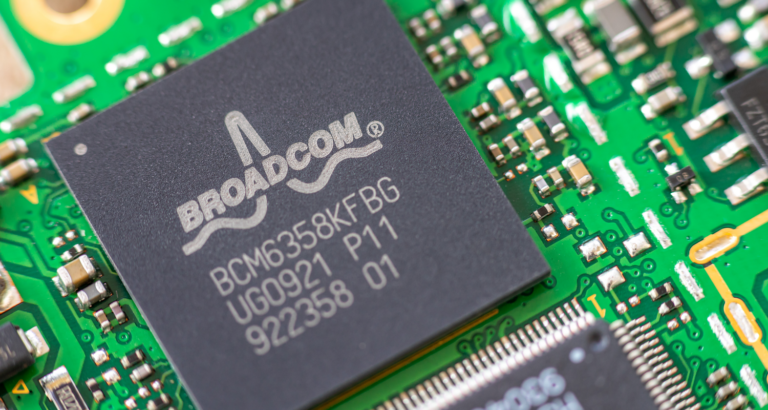Broadcom and ByteDance, the Chinese company behind the popular TikTok app, are in talks to produce an advanced AI chip. This chip would be based on the 5-nanometer process and utilise a design that falls outside the current export restrictions imposed on China by the United States.
The deal should allow ByteDance to build a stable supply of AI chips at a lower cost to run its own AI workloads. Taiwanese chip maker TSMC will produce the chip, according to Reuters, which relies on several anonymous sources for the report. Broadcom, ByteDance and TSMC did not confirm the news.
Still in the design phase
American chip designer Broadcom is already a partner of the Chinese company and supplies less advanced 7-nanometer chips to ByteDance. The intended new chip is still in its design phase; production will probably only start next year. It concerns an application-specific integrated chip (ASIC), i.e., a purpose-built chip.
Because of U.S. export restrictions, Chinese companies have a harder time getting advanced chips for such workloads. For ByteDance, which produces all kinds of apps besides TikTok and its Chinese version Douyin, a solid supply of AI chips is important for improving its algorithms and training chatbots. For example, the company’s ChatGPT-like service Doubao has some 26 million users, making it China’s most widely used AI chatbot.
Fierce competition
Because Chinese companies find it difficult to obtain advanced chips, they compete fiercely for the chips that are still available. These can be chips that are not subject to export restrictions or chips that China imported before the current restrictions took effect.
For example, ByteDance has stockpiled A100 and H100 Nvidia chips that are now under sanctions, as well as A800 and H800 chips that were initially allowed but are now restricted. According to sources cited by Reuters, ByteDance allocated 2 billion dollars for the purchase of chips last year.
Read also: The US wants the Netherlands to exclude more Chinese companies from using ASML machines
